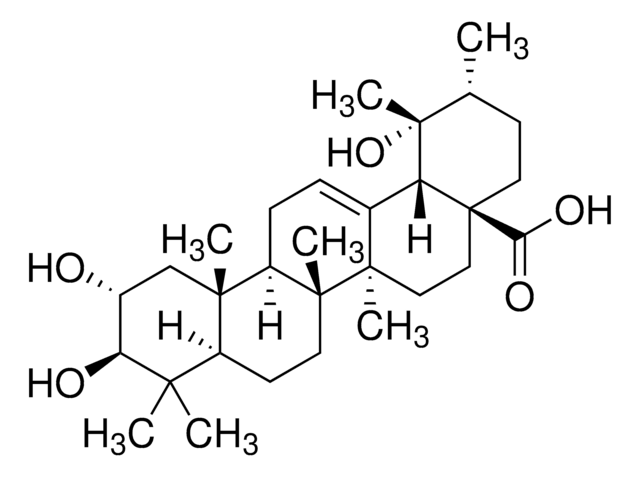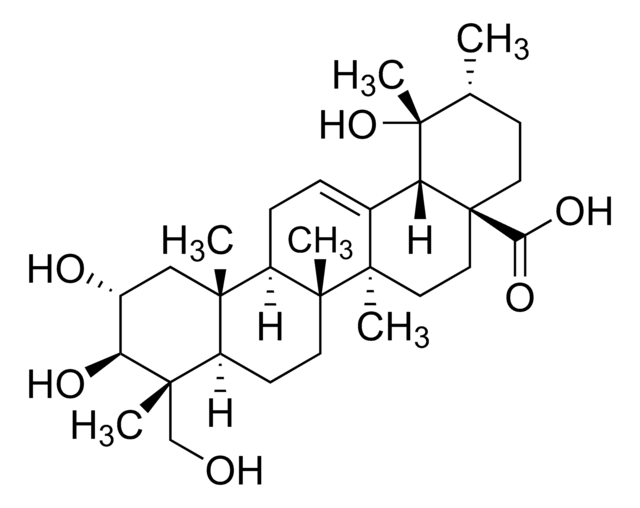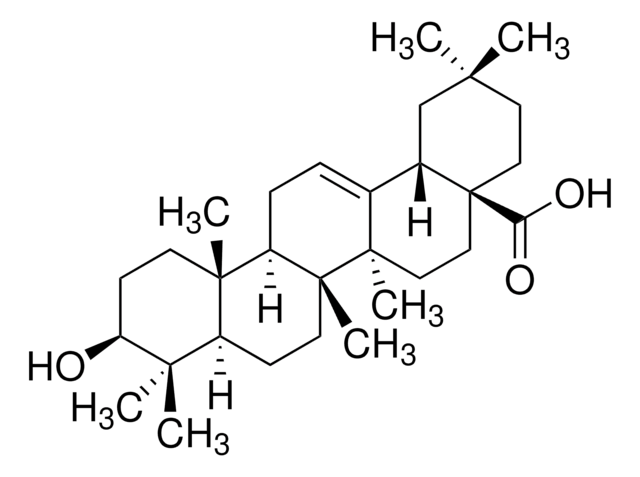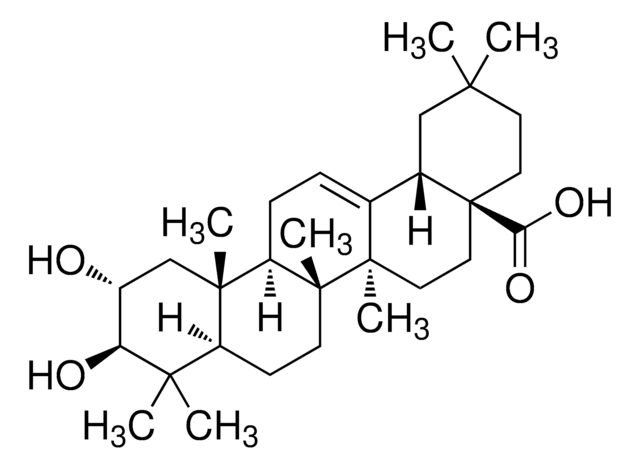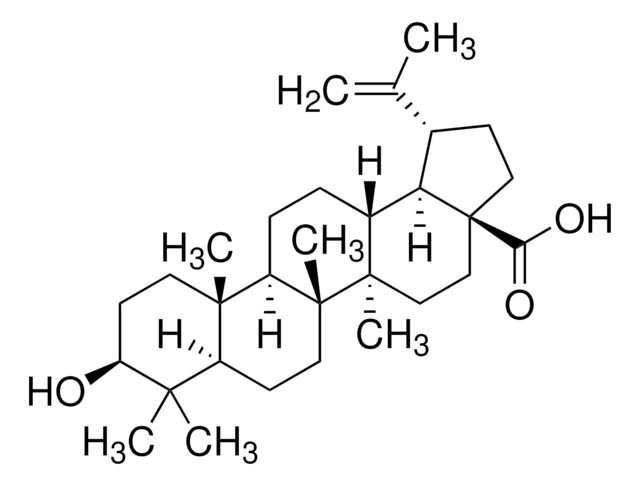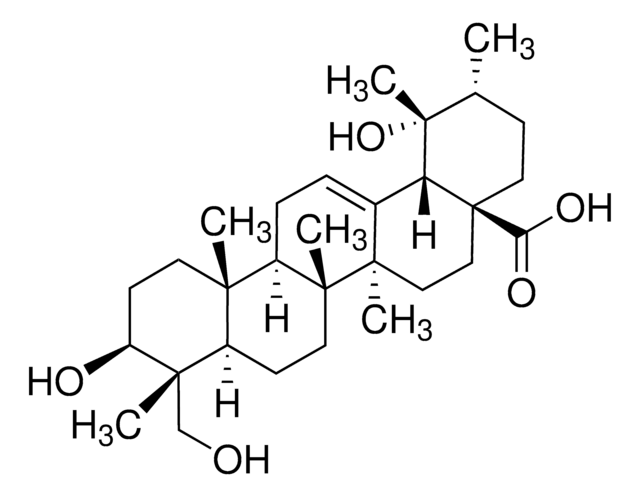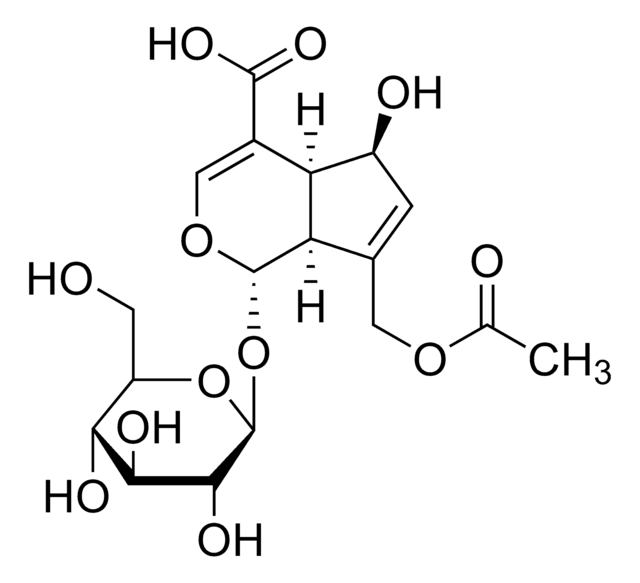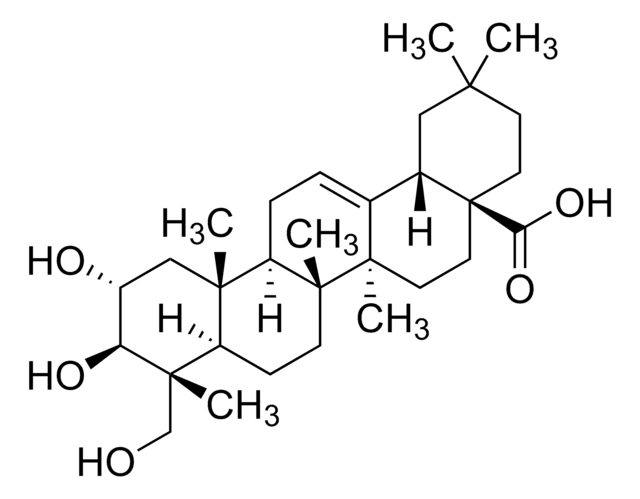SMB01016
Pomolic acid
≥90% (LC/MS-ELSD)
Sinónimos:
19α-Hydroxyursolic acid, Benthamic acid, Randialic acid A
About This Item
Productos recomendados
origen biológico
plant
Ensayo
≥90% (LC/MS-ELSD)
Formulario
solid
mol peso
472.7
solubilidad
water: slightly soluble
aplicaciones
metabolomics
vitamins, nutraceuticals, and natural products
temp. de almacenamiento
−20°C
InChI
1S/C30H48O4/c1-18-10-15-30(24(32)33)17-16-27(5)19(23(30)29(18,7)34)8-9-21-26(4)13-12-22(31)25(2,3)20(26)11-14-28(21,27)6/h8,18,20-23,31,34H,9-17H2,1-7H3,(H,32,33)/t18-,20+,21-,22+,23-,26+,27-,28-,29-,30+/m1/s1
Clave InChI
ZZTYPLSBNNGEIS-OPAXANQDSA-N
Descripción general
Aplicación
Acciones bioquímicas o fisiológicas
Características y beneficios
- Suitable for Biochemical and Biomedical research
- Versatile and adaptable for wide variety of laboratory and research applications
Otras notas
Código de clase de almacenamiento
11 - Combustible Solids
Clase de riesgo para el agua (WGK)
WGK 3
Punto de inflamabilidad (°F)
Not applicable
Punto de inflamabilidad (°C)
Not applicable
Elija entre una de las versiones más recientes:
Certificados de análisis (COA)
Lo sentimos, en este momento no disponemos de COAs para este producto en línea.
Si necesita más asistencia, póngase en contacto con Atención al cliente
¿Ya tiene este producto?
Encuentre la documentación para los productos que ha comprado recientemente en la Biblioteca de documentos.
Nuestro equipo de científicos tiene experiencia en todas las áreas de investigación: Ciencias de la vida, Ciencia de los materiales, Síntesis química, Cromatografía, Analítica y muchas otras.
Póngase en contacto con el Servicio técnico